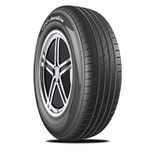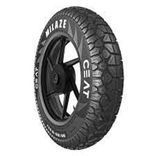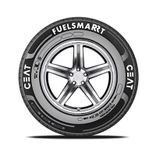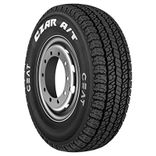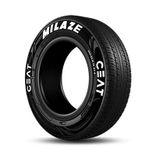Ad
Ad
Do Engine Oil Additives Really Improve Your Vehicle's Performance?
This article provides an in-depth overview of engine oil additives, explaining what they are, how they function, and whether they’re worth using in your vehicle.
Ad
Ad

When you stop at the petrol pump to refill your fuel tank, you often see some shelves of aftermarket oil additives that promise to improve mileage, clean the engine, and increase performance. You may have wondered - Is my vehicle missing them out? Or, is it worthwhile to use them in my new/old vehicle?
If yes, then you’re not alone. Today, we will discuss these additives so that you know them before adding to your vehicle’s bloodstream.
What Is An Engine Oil Additive?
There are different additives for different applications. Some of them are detergents, friction modifiers, antioxidants, corrosion inhibitors, viscosity modifiers, and others. Millions of dollars and hours go into creating and testing oil formulations so that they're just right.
The engine oil we use in our vehicles is made up of base oil and additives. Base oils account for 70-90 percent of the total and are derived from natural gas or crude oil, while additives make up the remaining 10-30 percent and can be anything from viscosity modifiers to detergents.
Moreover, there are several additives for different uses. Detergents, anti-wear additives, friction modifiers, antioxidants, corrosion inhibitors, viscosity index improvers, and other compounds are some examples of additives. Millions of rupees and hours are spent creating and testing oil compositions to ensure that they are just perfect.
The majority of the brightly colored bottles at the auto parts store include aftermarket or supplemental engine oil additives. Some claim to increase the life of the oil, while others promise they reduce engine smoke. However, there is conflicting information on whether they perform what they claim.
What Do Oil Additives Do for Your Engine?
Most engine oils include approximately 15% additives. Without additions, the oil is unable to perform its important tasks. Wear, oxidation, and breakdown can all cause the oil to degrade over time.
Engine oil can lose additives as it ages. Without the right quantities of these additives, your engine will experience greater wear and tear, potentially resulting in rust, corrosion, oil sludge, lower fuel economy, breakdowns, overheating, and costly repairs.
That's one reason a driver could consider using an aftermarket or supplemental engine oil additive between oil changes: they want to revitalise their oil as soon as possible. However, the value of an additive is determined by whether it comprises depleted additives and whether it offsets any of the remaining additives in the oil. Many different oil additives function by binding their molecules to an internal engine component. Too much of one ingredient may prevent a second necessary additive from functioning properly.
Are These Oil Additives Worth It?
The use of aftermarket engine oil additives has been a source of debate for years, and the answer isn't as simple as "yes" or "no." You may believe that because normal motor oil already contains additives, any further additives are unnecessary. However, things aren't always so clear. You should do your research, speak with your vehicle manufacturer, especially if your automobile is still under warranty, and make your own decision.
You should have to consider these below-mentioned factors every time you think about putting some additive to your vehicle.
Warranty
Always double-check your manufacturer’s warranty. Adding more additives to an engine oil may unbalance the additive system, causing negative side effects and potentially violating the engine manufacturer's warranty.
Mileage and Vehicle Age
The more kilometers you drive your engine, the more likely it is to be operating at less-than-optimum performance, making it more vulnerable to potential harm. The carefully calibrated addition of specific oil additives to a properly designed high-mileage engine oil has the ability to minimise stress and wear on your high-mileage engine while also restoring performance. Consistently using high-mileage oil can be beneficial.
CarBike360 Says
When it comes to knowing what's best for your engine, using aftermarket engine oil additives can be a bit of a grey area. Finally, getting regular oil changes using high-quality oil that meets your car manufacturer's recommendations might be more helpful to your vehicle's long-term performance and help you stay within your warranty.
Also Read: How to Choose the Right Lubricants for Your Car, Bike, and Scooter
More Articles

Meet the Hero Vida V1: Sleek, Smart, and Sustainable
The Hero Vida V1 electric scooter offers sleek design, innovative technology, and impressive performance. Learn about its features, variants, pricing, and competition in India’s growing electric vehicle market.
20-Feb-2025 12:01 PM
Read Full Article
Meet the Hero Vida V1: Sleek, Smart, and Sustainable
The Hero Vida V1 electric scooter offers sleek design, innovative technology, and impressive performance. Learn about its features, variants, pricing, and competition in India’s growing electric vehicle market.
20-Feb-2025 12:01 PM
Read Full Article
Brake Fluid Types Explained: DOT 3, DOT 4, DOT 5 – Which One to Use?
This article explains the different types of brake fluids (DOT 3, DOT 4, DOT 5, DOT 5.1) and which one to use in your vehicle.
13-Feb-2025 01:12 PM
Read Full Article
Brake Fluid Types Explained: DOT 3, DOT 4, DOT 5 – Which One to Use?
This article explains the different types of brake fluids (DOT 3, DOT 4, DOT 5, DOT 5.1) and which one to use in your vehicle.
13-Feb-2025 01:12 PM
Read Full Article
How to Choose the Right Lubricants for Your Car, Bike, and Scooter
Learn how to choose the right lubricants for your vehicle, whether it’s a car, bike, or scooter. This guide covers essential factors such as engine oil, transmission fluids, and maintenance tips to ensure optimal performance and longevity.
12-Feb-2025 05:57 AM
Read Full Article
How to Choose the Right Lubricants for Your Car, Bike, and Scooter
Learn how to choose the right lubricants for your vehicle, whether it’s a car, bike, or scooter. This guide covers essential factors such as engine oil, transmission fluids, and maintenance tips to ensure optimal performance and longevity.
12-Feb-2025 05:57 AM
Read Full Article
Impact of Poor Lubrication on Your Vehicle’s Performance and Longevity
Lubrication is key to your vehicle’s performance and longevity. This article covers the effects of poor lubrication, its causes, and tips to prevent it, ensuring your vehicle runs smoothly and lasts longer.
10-Feb-2025 07:32 AM
Read Full Article
Impact of Poor Lubrication on Your Vehicle’s Performance and Longevity
Lubrication is key to your vehicle’s performance and longevity. This article covers the effects of poor lubrication, its causes, and tips to prevent it, ensuring your vehicle runs smoothly and lasts longer.
10-Feb-2025 07:32 AM
Read Full Article
How to Read Engine Oil Labels: Understanding API, ACEA, and SAE Ratings
Learn how to read your vehicle’s engine oil label and make informed decisions to improve engine health and longevity. This guide explains essential information such as the SAE code, API standards, and manufacturer certifications.
07-Feb-2025 08:17 AM
Read Full Article
How to Read Engine Oil Labels: Understanding API, ACEA, and SAE Ratings
Learn how to read your vehicle’s engine oil label and make informed decisions to improve engine health and longevity. This guide explains essential information such as the SAE code, API standards, and manufacturer certifications.
07-Feb-2025 08:17 AM
Read Full Article
Clutch Fluid vs. Brake Fluid: Are They the Same?
Brake and clutch fluids are crucial for the performance and safety of your vehicle. This article explains their functions, maintenance tips, and when to know it's time to inspect or replace these fluids.
05-Feb-2025 12:19 PM
Read Full Article
Clutch Fluid vs. Brake Fluid: Are They the Same?
Brake and clutch fluids are crucial for the performance and safety of your vehicle. This article explains their functions, maintenance tips, and when to know it's time to inspect or replace these fluids.
05-Feb-2025 12:19 PM
Read Full ArticleAd
Ad






